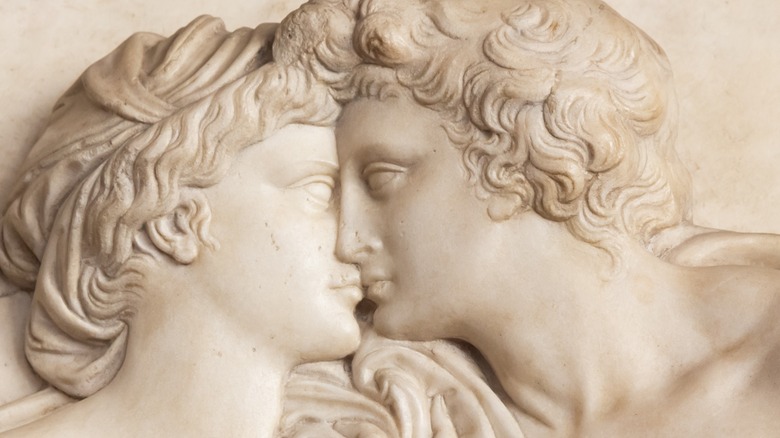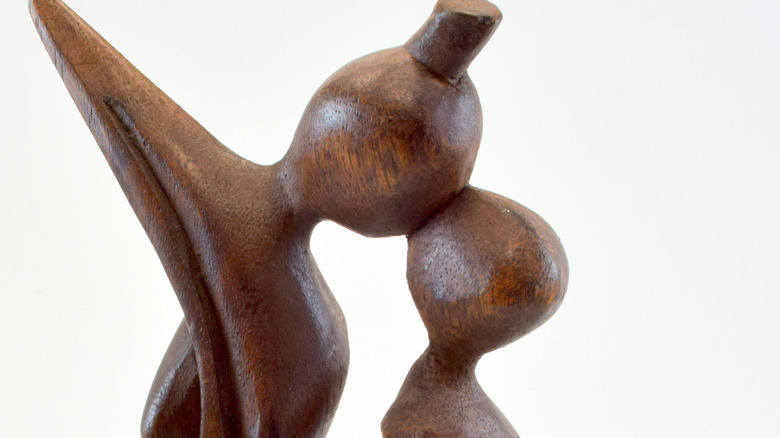This Is The First Recorded Kiss In History
It's a central theme throughout pop culture — two people learning in for a smooch, a romantic scene described in a song like Faith Hill's "This Kiss" (posted on YouTube). The setting and reason for a kiss, however, is not always romantic. For centuries kissing has been recorded to be political or controversial. Debates have been ongoing between scholars about who had the first recorded kiss in history, but it was likely a learned behavior rather than instinctual, according to Psychology Today, which says whopping 10% of the human population does not kiss.
Some people believe that it comes from the earliest days of human life, from "kiss feeding," where mothers are believed to have chewed food and passed it from their mouths into those of their infants, according to Live Science. Other theories suggest that cavemen went around smelling and tasting the saliva of cavewomen to see if they were healthy and a good partner with whom to procreate, according to NPR.
Ancient Indian Texts
Some of the earliest recordings of a kiss as we now know it include those written in ancient Indian and Hindu texts. Vedic Sanskrit scriptures around 1500 B.C contain the first mention of connected lips. According to research by Texas A&M anthropology professor Vaughn Bryant, the Vedas, which are the foundations of the Hindu religion, mention people "touching" with their mouths. Later, more kissing as a sign of affection was found in ancient Indian epic literature called the "Mahabharata," which was written around the 4th century A.D., according to World History.
Within the text is a line saying, "set her mouth to my mouth and made a noise that produced pleasure in me," according to History. Later, and possibly most famously, came the Indian religious text "Vatsyayana Kamasutram," or "Kama Sutra," which identifies different methods of kissing.
Its believed that kissing was introduced to Europe by Alexander the Great, who brought the practice of kissing back following his invasion of India in the fourth century A.D., according to History Daily.

